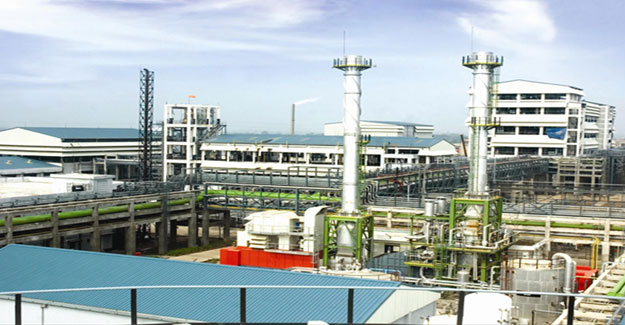
Surat Industries Begin Trade In Particulate Matter
India launched the world's first market for trading in particulate matter emissions. The Emissions Trading System (ETS) is a partnership between South Gujarat Textile Processors Associaton, National Commodities and Derivatives Exchange e-Markets Limited (NeML), Energy Policy Institute at the University of Chicago in India, and Abdul Latif Jameel Poverty Action Lab (J-PAL). As many as 88 companies participated in the first round out of 155 that have joined the ETS so far. Emission permits worth Rs 2.78 lakh were traded. These industries are from sectors including textiles, chemicals, and sugar, spread over an area of 30-50 sqkm. These industries use either coal or bagasse (residue after juice is extracted from sugarcane) as fuel, thus emitting a high amount of ash. The participants were selected on the basis of the size of their chimneys - those with a diameter of 24 inches or more. "So most of the participants are larger players," said NM Tabhani, member secretary of GPCB. Why was Surat chosen for the scheme? In the last few years, the quality of air in Surat has deteriorated. In 2013, when the project was conceptualised, the PM10 level of Air India Building in Surat was 86 micrograms per cubic metre. According to GPCB annual reports, pollution levels have increased between 120-220%, with PM10 in 2018 reaching 189 micrograms per cubic metre at the building, 282 micrograms per cubic metre at Sachin Industrial Estate, and 261 micrograms per cubic metre at Garden Silk Mills. Surat was chosen because its industrial associations agreed to run the pilot scheme, said officials associated with the project. Also, industries in Surat had already installed Continuous Emission Monitoring Systems, which makes it possible to estimate the mass of particulate matter being released. How does trading take place? At the beginning of every one month compliance period (during which one emission permit is valid), 80% of the total cap of 280 tonnes for that period is distributed free to all participant units. These permits are allocated based on an industry's emission sources (boilers, heaters, generators) as this determines the amount of particulate matter emitted. GPCB will offer the remaining 20% of the permits during the first auction of the compliance period, at a floor price of Rs 5 per kg. Participating units can buy and sell permits among each other during the period. The price is not allowed to cross a ceiling of Rs 100 per kg or fall below Rs 5 per kg, both of which may be adjusted after a review. In the first round of trading, GPCB put out 55,993 permits, of which 55,614 were traded. How are the auctions conducted? These take place on the ETS-PM trading platform hosted by the National Commodities and Derivatives Exchange e-Markets Limited (NeML). All participants must register a trading account with NeML. Transactions are linked to the bank accounts of the users, who can view updates through these accounts. There are two types of auctions. In the Uniform Price Auction every Tuesday between 3pm ad 5 pm, the week's permit price is discovered by participating members through bidding. Second, there is a continuous market between Wednesday & Monday (2pm to 5 pm) where members will buy and sell permits whose prices were fixed on Tuesday. For a true-up period of 2-7 days before the completion of the compliance period, units may continue to buy and sell any remaining permits at the final auction price to meet their compliance obligations. How will ETS help reduce emissions? "Industries in this area are emitting way above the cap at 362 tonnes per month. To bring them down to 280 will be a huge reduction. In the future this cap may be reduced below 280 tonnes," said Garg Goswami, a research associate at J-PAL, with its global office at Massachusetts Institute of Technology. "These permits are not a way to allow industries to keep polluting. Purchasing permits is only an interim measure for many of these units who find it financially difficult to install air pollution control measures. In other words, it helps you buy some time and make investments later. So the idea of this scheme is also to make sure that some units realise that it is cheaper to install APCM and reduce emissions rather than buy permits at a higher cost that will vary due to the bidding process," Goswami said.
Textile Excellence
If you wish to Subscribe to Textile Excellence Print Edition, kindly fill in the below form and we shall get back to you with details.












